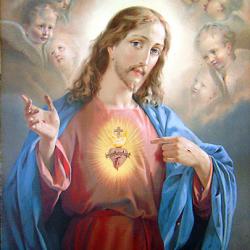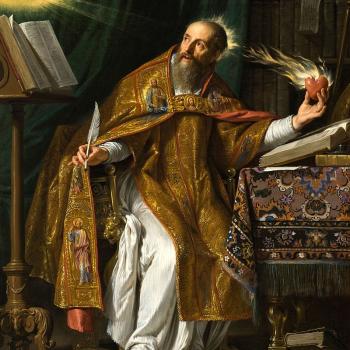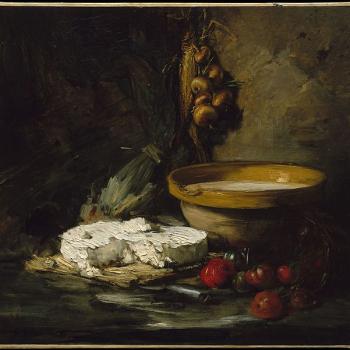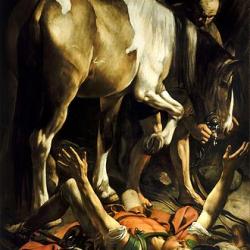I believe that all human beings have quirks. Some harmless and meaningless and some detrimental to living a normal life. One of my peculiar and particular quirks is my weird obsessions with making lists. These lists consist of what books and movies I eventually want to read and or watch. Often times I will buy books or movies with the hopes of reading or watching them and really focusing in on them so that I can write something meaningful about them.
A review A reflection, or Deep Thought.
This book was good. It made think about stuff. What a well written piece of art.
But my short attention span fueled by lack of sleep fuels the desire to look up more information so I can put it in a list, so that I can eventually look at it in-depth later. I supposed this is also a mild form of OCD. So thus I have books and movies I have bought but never read or watched because of my hunger to look up more information. If I actually focused in on one specific thing, I couldn’t look up more things to eventually read in-depth later on.
But thanks be to God for this blog. It is an opportunity to focus my writing skills in a particular area. So in this post, I want to give you one of my reading lists of books or authors I haven’t yet read but still plan on reading someday. I plan to if I can overcome my ADD (my wife would say throw the H in there so it’s ADHD). It is a detailed list of popular and independent Catholic writers who specialize in writing speculative fiction, namely Science Fiction, Fantasy, and Horror. There is also some mystery and thrills involved in their work as well. But all the authors reflect the Beauty, Goodness, and Truth (TBG) found in God and the Catholic faith.
The authors will speak for themselves about some aspect of writing or Catholic life and then I give you a taste of what book I might want to read at some point. Even if I never get to reading them, perhaps you will. And to start things off I explain with a quote why I use so many quotes.
“I love quotations because it is a joy to find thoughts one might have, beautifully expressed with much authority by someone recognized wiser than oneself.”- Marlene Dietrich
Now, “To Infinity and Beyond”- Buzz Lightyear
I want to start off with some thoughts about …
Catholics and Sci-Fi
All fiction is really science fiction.
I mean, despite its apparent realism, the political thriller ‘House of Cards’ is really an alternate universe story where someone other than John Major became prime minister after Margaret Thatcher, right?
Every single work of fiction takes place in a universe where history unfolded in a different way than it did in this one (sometimes with different laws of nature as well).
Even apparently realistic stories are about alternate universes with alternate histories.
So . . . everyone’s a science fiction fan whether they realize it or not.
–Jimmy Akin

God made our imaginations! If you have no “sense of wonder” or can’t manage “the willing suspension of disbelief” then this literature isn’t for you. What Tolkien called the “sub-creation” of a Secondary Universe is an honorable way of imitating Primary Creation, whether one is designing an extraterrestrial planet or mapping some corner of Faeryland.
Sandra Miesel Part 2 of Catholics & Science Fiction | An Interview with Sandra Miesel ignatiusinsight.com
For some reason her Sci-Fi novels are out of print and not on Kindle.

Our culture has almost no place left where matters of philosophy and theology can be discussed freely in the public square. It’s out of court in politics, it does not sell beer and shampoo on television, our Chattering Classes are so ignorant of the most elementary points of both that the less said the better on almost any talk show you could name. But in the countless worlds of science fiction and fantasy, there is still limitless room for a talented Catholic writer to spin a yarn and proclaim the gospel thereby. God send more gifted apostles to this new Areopagus!
-Mark Shea Science Fiction/Fantasy and the Areopagus (May 14, 2009) catholicexchange.com/Mark-Shea.com

I can’t tell you how many times I’ve looked up at the stars in the night sky and wondered, what if…
And really, I think that the larger reason why science fiction has endured for me as a lifelong passion is that it embodies the one thing that makes stories utterly compelling: the thrill, and often the fear, of the unknown. Not knowing what’s out there, how dangerous it is, how inevitable it is, is an utterly terrifying concept that is uniquely exciting.
It’s like standing outside in a particularly powerful storm and wondering just how much destructive power it will bring to bear.
Steve Skojec SciFi & The Thrill of the Unknown in Storytelling (Jul 24, 2019) steveskojec.com

Catholic Sci-Fi, Fantasy and Horror Writers
Anthony Boucher
Boucher’s short mystery stories, like his mystery novels and science fiction, reflect all the interests and enthusiasms that filled his life, with religion, opera, football, politics, movies, true crime, record collecting and an abundance of good food and wine alongside the clues and puzzles and deductions. His stories are further enhanced by a dimension whose value has increased with the passing years.
“He used to say,” Phyllis White remarked, “that the heresy of our age is the perceived dichotomy between art and entertainment: if something is one, it cannot be the other. Things that are now being studied in school were in their own time great popular successes. The public avidly awaited the next installment of a current Dickens novel. There was a popular following of the Elizabethan theater and of the Greek theater. He used to say you could get a better idea of just what it was like to be alive in that time from reading the fiction of an earlier period than you could from reading a factual history.”
–Francis M. Nevins INTRODUCTION: THE WORLD OF ANTHONY BOUCHER, Ramblehouse.com

But what is your mission.”
“To find Aquin,” Thomas repeated patiently. “I don’t know what details have been—what is it you say?—fed into you. But reports have reached His Holiness of an extremely saintly man who lived many years ago in this area—”
“I know I know I know,” said the robass. “His logic was such that everyone who heard him was converted to the Church and do not I wish that I had been there to put in a word or two and since he died his secret tomb has become a place of pilgrimage and many are the miracles that are wrought there above all the greatest sign of sanctity that his body has been preserved incorruptible and in these times you need signs and wonders for the people.”
Thomas frowned. It all sounded hideously irreverent and contrived when stated in that deadly inhuman monotone. When His Holiness had spoken of Aquin, one thought of the glory of a man of God upon earth—the eloquence of St. John Chrysostom, the cogency of St. Thomas Aquinas, the poetry of St. John of the Cross.. . and above all that physical miracle vouchsafed to few even of the saints, the supernatural preservation of the flesh.. . “for Thou shalt not suffer Thy holy one to see corruption.. .“But the robass spoke, and one thought of cheap showmanship hunting for a Cardiff Giant to pull in the mobs…- Anthony Boucher, The Quest for Saint Aquin, (1951) found in The Compleat Boucher (1999)
This particular book is not an e-book. But his short stories are found in other collections that are e-books. This particular story is found in a book edited by Fr. Andrew M. Greeley called Sacred Visions (1991)
Mr. Boucher has some free stories at Free SF Online and books you can check out at Open Library
Regina Doman
A greenhouse, on the other hand, is a necessary part of any agricultural environment. It’s for baby plants, for young plants, for damaged plants to grow and be nurtured and recover so that they can survive in the outside world. I believe that’s what Catholic culture is meant to be, and what it does best. That’s why Catholics have built schools and hospitals and retreat centers and rehab centers. That’s why they operate nurseries, orphanages, and old-age homes. That’s why current Catholic leaders like Pope Francis continually stress the importance of the Catholic family.
That’s what Catholic fiction can do. It can support and nurture the imagination of young and growing Catholics. It can help older Catholics reorient themselves and find rest in leisure. And it can do this while being entertaining and FUN.
Regina Doman Why Catholic Fiction? (Feb 21st 2014)
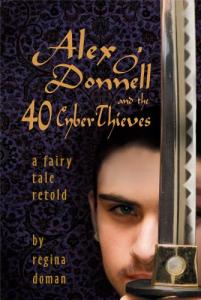
“I shall have twenty cats and talk to them all,” she said, picking up the volume of poetry. “My cats and I shall have fish every day for dinner.” Her imagination taking flight, she finished, dropping the book into the box, “And I shall memorize every line in this book and paint it in calligraphy on my living room walls.”
― Regina Doman, Waking Rose (2007)
“Have you ever felt that there was something going on in life that not everyone was aware of?’ Rose asked, turning her mug around in her hands.
Bear relaxed a bit more deeply into the couch, and put on a mock-solemn look. ‘Explain thyself.’
‘As though there’s a story going on that everyone is a part of, but not everybody knows about? Maybe ‘story’ isn’t the right word- a sort of drama, a battle between what’s peripheral and whats really important. As though the people you meet aren’t just their plain, prosaic selves but are actually princes and princesses, gods and goddesses, fairies, shepherds, all sorts of fantastic creatures who’ve chosen to hide their real shapes for some reason or another. Have you ever thought that?”
― Regina Doman, The Shadow of the Bear (1997)
I couldn’t decide exactly which book by her I wanted to put in this list so I choose a few different cool quotes from Regina’s books I found on Good Reads. Regina also collaborated with Patheos Manager Rebecca Bratten Weiss to produce the out of print masterpiece Catholic Philosopher Chick Makes Her Debut (2012) and it’s sequel Catholic Philosopher Chick Comes on Strong (2014). WE can only hope that someday it will go up for sale once again.
Karina Fabian & Colleen Drippé
I’ve been writing since I was a kid. One Lent, when my eldest two were toddlers and I had left the military to be a stay-at-home-mom, I got really mad at a book I was reading because I knew I could do better. So I gave up reading for Lent and took up writing. I’ve been writing ever since. (Of course, I also returned to reading!)
Karina Fabian, Meet Karina Fabian, sci-fi author (APRIL 27, 2020) /thekoalamom.com/
Karina Fabian is one of the founding members of the Catholic Writers’ Guild, an American-based but international organization of Catholic writers, editors and illustrators.

What I say to you now is true. My art is to remind you of what you already know – because you and I are so made that we must hear these things over and over for all of our lives. Only when our time in this world is finished, may we savor what is true and know that we will not lose it.
Like the beating of our hearts, which, should they take a notion to change rhythm, would soon falter and cease beating at all – so must I repeat for you the moral truths that underlie all things. So am I bound and such is my art.
Colleen Drippé colleendrippe.com/about/
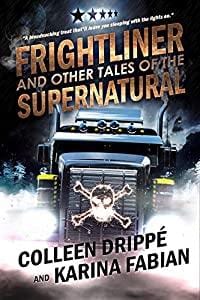
“Why are you telling me this?”
“‘Cause you ain’t like them. You just don’t have enough faith in God to go up against the likes of me.”
Jay looked down at the altar, his eyes burning. His parents took him to Sunday services as a kid, but it never meant much, just what was expected. He never went now that he was an adult. Never even thought about it. The thing was right. He didn’t have a lot of faith. Never did. The vampire climbed the first step of the sacristy.
“I’m giving ya one last chance. Go now.” He glanced at the thing’s disfigured face. He might not believe much in God, but the thing obviously believed in His power. He grasped a stake in both hands. It was red and blue and gold in the light.
“No.”
The vampire took the second step. “This is the last time I’m asking. Get out while the getting’s good!” And maybe even if he didn’t have faith in God, God could have faith in him.
“No!” Jay shouted.
The vampire snarled like an animal and leapt.
-Karina Fabian and Colleen Drippé, Frightliner and Other Tales of the Supernatural (2020)
Michael F. Flynn
The existence of alien beings became popular in the medieval period. Sometimes they were used to frighten people (a la The Blob or Earth Versus the Flying Saucers) and sometimes they were used to illustrate virtues (ET: The Extraterrestrial) or vices (the Ferengi in Star Trek:The Next Generation). According to a Welsh poem, King Arthur fought with the creatures.-Michael F. Flynn St. Christopher, ET, and the Middle Ages
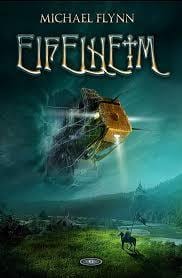
AUGUST, 1348
At Matins, The Commemoration of Sixtus II and His Companions
The lightning struck without warning! Dietrich felt fire run through his entire being. Beside him, the Minorite arched his back, his eyes bulging wide and his lips pulling back from his teeth. Sparks leapt between the two candlesticks. A great burst of light washed through the stained-glass lancets in the north wall of the church, casting rainbows. Saints and prophets blazed in glory: Mary, Leonard, Catherine, Margaret of Antioch, bright as the sun.
Radiances streamed through their images and played across the dim interior, speckling the statues and columns with gold and yellow and red and white so that they seemed almost to move. Joachim fell to his knees and bowed, covering his face against the radiant windows. Dietrich knelt also, but looked everywhere at once, trying to take it all in. An avalanche of thunder followed upon the flash; and the bells in the tower pealed a mad, arrhythmic clanging. The timbers of the church creaked and moaned and wind rushed through the vises and passageways under the roof, howling like a beast. Griffins and wyverns growled. Carven dwarfs groaned. Window glass shrieked and cracked into spiderwebs.
And then, as abruptly as it had begun, the light dimmed and the thunder and the wind faded. Dietrich waited, but nothing more happened. He took a deep breath and found that the feeling of dread had left him as well. Whispering a brief prayer of thanksgiving, he rose to his feet. He glanced at Joachim, who had curled on the flagstone paving with his arms wrapped around his head, then he turned to the credence table and touched the candlestick. Nothing happened. He looked at the cracked windows. Whatever had been approaching had arrived.
-Michael F. Flynn Eifelheim (2006)
Mr. Flynn has some free stories at Free SF Online
and books you can check out at Open Library including this one.Fr. Andrew Greeley
Catholics live in an enchanted world, a world of statues and Holy water, stained glass and votive candles, saints and religious medals, rosary beads and holy pictures. But these Catholic paraphernalia are mere hints of a deeper and more pervasive religious sensibility which inclines Catholics to see the Holy lurking in creation. As Catholics, we find our houses and our world haunted by a sense that the objects, events, and persons of daily life are revelations of grace.” – Fr. Andrew Greeley, The Catholic Imagination (2002)
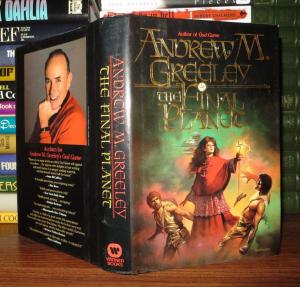
With the Transit stations developed half a millennium ago, Tara was only two weeks from Earth. If ever the components of such a station, long stored in the hold of the Iona, were assembled here on Zylong, it would be only a little more than two months from Zylong to Earth, and the Transit circuits were not crowded in this era between Explorations—save of course for Tarans, who were incorrigible travelers and pilgrims. The Holy Rule said that no pilgrim could return to Tara or to Earth, unless his monastery had found a planet that would accept it. Then that planet became your home, but you could visit previous homes for reasonable times, “so long as the purpose is educational and religious.”
–Andrew M. Greeley, The Final Planet (1987)Dean Koontz
My fifty seethingly angry correspondents were furious with me because the story line of HIDEAWAY assumed the existence of God and Heaven. They accused me of corrupting the minds of innocent youth, of being a paid shill for the Vatican, and of being a moron.
Dean Koontz 10 reasons Catholics Should Read Dean Koontz by Michael Saltis (Nov 18, 2014) aleteia.org
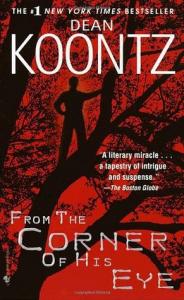
“Not one day in anyone’s life is an uneventful day, no day without profound meaning, no matter how dull and boring it might seem, no matter whether you are a seamstress or a queen, a shoeshine boy, or a movie star, a renowned philosopher or a Down’s-syndrome child. Because in every day of your life, there are opportunities to perform little kindnesses for others, both by conscious acts of will and unconscious example. All human lives are so profoundly and intricately entwined—those dead, those living, those generations yet to come—that the fate of all is the fate of each, and the hope of humanity rests in every heart and in every pair of hands. Therefore, after every failure, we are obliged to strive again for success, and when faced with the end of one thing, we must build something new and better in the ashes, just as from pain and grief, we must weave hope, for each of us is a thread critical to the strength—to the very survival of the human tapestry. Every hour in every life contains such often-unrecognized potential to affect the world that the great days and thrilling possibilities are combined always in this momentous day.”
― From the Corner of His Eye
Once upon a time I actually listened to a lot of Dean Koontz audiobooks. He’s become a favorite author of mine.
R.A. Lafferty
“All of the real original stories, all of the best stories, were first told by the animals. The bears were superb story-tellers; so were the deep-space geese (they took nine generations to make a migration, laying eggs on the space journey and hatching out of them on the space journey, for the summer-land of their migrations was not on Earth). The brindled cave-cats were very good story-tellers. Among the stories were well-established genre stories. The seals told under-water stories that they learned from river-and-ocean creatures; and the golden weasels, who really came from the moon, told all sorts of space stories. So the Neanderthals, who learned the stories from the animals, had a very good stock of tales.”
― R.A. Lafferty, It’s Down the Slippery Cellar Stairs
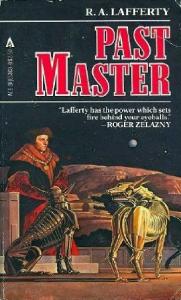
“There’s one other field of search,” Kingmaker came in as if on cue. If he hadn’t, Foreman would have had to suggest it himself and that would have taken the edge off it. “We need not limit ourselves to men now living. Chronometanastasis has been a working thing for a dozen years. Find a dead man who once led well. Let him lead again. It will catch the fancy of the people, especially if they guess it themselves and are not told it outright. There’s a bit of mystery attached to a man who has been dead. “But the dead of Astrobe will not do. A man doesn’t get hoary enough in five hundred. Let’s go back to Earth for a really big man, or one who can be presented as really big. How about Plato?”
“Thomas More,” he read. He folded the paper again and put it back in his pocket. “That’s right,” he said. “Only one name on my list. He had one completely honest moment right at the end. I can’t think of anyone else who ever had one.” “He did lose his head once in a time of crisis,” Proctor jibed. “I believe he can handle it,” Foreman said. “All that’s required is a mustard seed.” “Lay off it, you damned riddle maker,” Kingmaker growled sharply. “We have to hurry. It’s your life they are after this day, Fabian. Yes, he’ll make a nice novelty, and he’ll be presentable. I could say a dozen things against his selection. I could say twice as many against any other candidate we might propose. Shall we?” They all nodded together. “Send for him!” Kingmaker smote his chair with finality.
THE PILOT chosen by Fabian Foreman to bring Thomas More from Earth to Astrobe was named Paul.- R.A. Lafferty, Past Master (1968)
Mr. Lafferty has some free stories at Free SF Online
and books you can check out at Open Library including this one.Walter Miller
Miller’s issues with Catholicism weren’t merely—and maybe not even mostly—about adherence to Catholic teachings about marriage and family life. In later decades he expressed, on at least one occasion, some distaste for the liturgical reforms of the Second Vatican Council. More importantly, he also developed fundamental doubts about aspects of Catholic theology and indeed Western Christian civilization in general. These doubts appeared unmistakably in the decades after he wrote Canticle, but if you read that novel closely, you can see them beginning to bubble up to the surface.
The monastery at the focal point of Canticle’s three sections belongs to the Albertian Order of Leibowitz, a religious community founded in the aftermath of the “Flame Deluge,” as survivors of the nuclear war call it. Isaac Edward Leibowitz, a Jewish electrical engineer who converted to Catholicism after the war, founded the order and dedicated it to preserving and protecting books, and especially works of science and technology, in hopes of an eventual revival of civilization. The order’s conservationist mission is especially vital because of the “Simplification,” a millenarian movement in which rampaging mobs of “Simpletons” blamed the nuclear war on the arrogance of, first, scientists and, then, the merely literate.
Daniel Kennelly, The Miracle of Canticle (September 27, 2019)
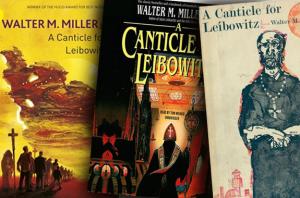
He had never seen a “Fallout,” and he hoped he’d never see one. A consistent description of the monster had not survived, but Francis had heard the legends. He crossed himself and backed away from the hole. Tradition told that the Beatus Leibowitz himself had encountered a Fallout, and had been possessed by it for many months before the exorcism which accompanied his Baptism drove the fiend away.
Brother Francis visualized a Fallout as half-salamander, because, according to tradition, the thing was born in the Flame Deluge, and as half-incubus who despoiled virgins in their sleep, for, were not the monsters of the world still called “children of the Fallout”? That the demon was capable of inflicting all the woes which descended upon Job was recorded fact, if not an article of creed.
― Walter Miller, A Canticle for Leibowitz (1959)
Mr. Miller has some free stories at Free SF Online
and books you can check out at Open Library including this one.
Tim Powers
And we did get to Jerusalem, several times! As Catholics, we found that was kind of comprehension overload — the realization that God walked right here, and according to tradition touched this particular stone, and died right here, is just disorienting. You only begin to appreciate it later, in pieces.
Tim Powers Three Days To Never: The Interview (September 08, 2006) jimmyakin.org
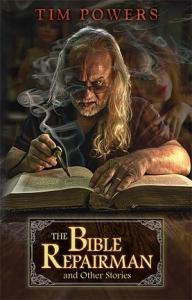
“And he had a couple of Bibles in need of customized repair, and those were an easy fifty dollars apiece – just brace the page against a piece of plywood in a frame and scorch out the verses the customers found intolerable, with a wood-burning stylus; a plain old razor wouldn’t have the authority that hot iron did. And then of course drench the defaced book in holy water to validate the edited text. Matthew 19:5-6 and Mark 10:7-12 were bits he was often asked to burn out, since they condemned re-marriage after divorce, but he also got a lot of requests to lose Matthew 25:41 through 46, with Jesus’s promise of Hell to stingy people. And he offered a special deal to eradicate all thirty or so mentions of adultery. Some of these customized Bibles ended up after a few years with hardly any weight besides the binding.”
― Tim Powers, The Bible Repairman and Other Stories
Mr. Powers has some free stories at Free SF Online
and books you can check out at Open Library including this one.
Christopher Stasheff
I recall reading the one and only time out of all the voluminous reading in my youth a scene where a monk tries to persuade a nymph not to have sex out of wedlock, and he patiently and kindheartedly explained the drawbacks and costs, particularly to one’s inner most self. It stood out like a single tree in a flat salt plain, because all other books I read, if they touched on questions of sex at all (few did) unabashedly and onesidedly promoted the lifestyle of James Bond and Captain Kirk, and Hugh Hefner as the ideal. The only possible objection ever proffered to a live of endless orgies was placed in the mouths of stupid, cardboard characters meant to represent repressive Victorian Puritanism, always written by sophomoric writers with no knowledge whatever of either the real Victorians or the real Puritans.
The scene was in a novel by Christopher Stasheff, one of his WARLOCK IN SPITE OF HIMSELF sequels. I found out only this year that Mr. Stasheff wrote as staunch Roman Catholic.
Angelo Stagnaro, An Interview with Catholic Sci-Fi Author John C. Wright (March 31, 2017) National Catholic Register
![]()
They canonized him eventually, of course—there was no question that he’d died for the Faith. But the miracles started right away. In Paris, a computer programmer with a very tricky program knew it was almost guaranteed to hang. But he prayed to Father Vidicon to put in a good word for him with the Lord, and the program ran without a hitch. Art Rolineux, directing coverage of the Super Bowl, had eleven of his twelve cameras die on him, and the twelfth started blooming. He sent up a quick prayer to Father Vidicon, and five cameras came back on-line. Ground Control was tracking a newly-launched satellite when it suddenly disappeared from their screens. “Father Vidicon, protect us from Finagle!” a controller cried out, and the blip reappeared. Miracles? Hard to prove—it could’ve been coincidence. It always can, with electronic equipment. But as the years flowed by, engineers and computer programmers and technicians all over the world began counting the prayers, and the numbers of projects and programs saved—and word got around, as it always does. So the day after the Pope declared him to be a saint, the signs went up on the back wall of every computer room and control booth in the world: “St. Vidicon of Cathode, pray for us!”
-Christopher Stasheff, Saint Vidicon To The Rescue
Mr. Stasheff has some free stories at Free SF Online
and books you can check out at Open Library
This reminds one of newly Blessed Carlo Acutis.
Gene Wolfe
It has been remarked thousands of times that Christ died under torture. Many of us have read so often that he was “a humble carpenter” that we feel a little surge of nausea on seeing the words yet again. But no one ever seems to notice that the instruments of torture were wood, nails, and a hammer; that the man who built the cross was undoubtedly a carpenter too; that the man who hammered in the nails was as much a carpenter as a soldier, as much a carpenter as a torturer. Very few seem even to have noticed that although Christ was a “humble carpenter,” the only object we are specifically told he made was not a table or a chair, but a whip.
Gene Wolfe, A Catholic sci-fi classic: Gene Wolfe’s Book of the New Sun by Thomas V. Mirus (Apr 04, 2016)
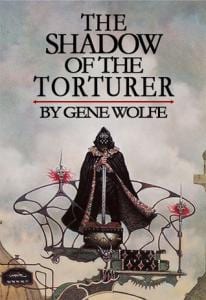
I had to set the candelabrum on the floor and crouch beside it. The book in my hands was so old and stiff and musty that it seemed impossible that it had been opened within the past century, but the title page confirmed the old man’s boast. A subtitle announced: “Being a Collection from Printed Sources of Universal Secrets of Such Age That Their Meaning Has Become Obscured of Time.”
Master, you know of the corpse-eaters, surely. I have heard it said that by devouring the flesh of the dead, together with a certain pharmacon, they are able to relive the lives of their victims.” “It is unwise to know too much about these practices,” the archivist murmured, “though when I think of sharing the mind of a historian like Loman, or Hermas …”
In his years of blindness he must have forgotten how nakedly our faces can betray our deepest feelings. By the light of the candles I saw his twisted in such an agony of desire that out of decency I turned away; his voice remained as calm as some solemn bell. “But from what I once read, you are correct, though I do not now recall that the book you hold treats of it.”
“Master,” I said, “I give you my word I would never suspect you of such a thing. But tell me this—suppose two collaborate in the robbing of a grave, and one takes the right hand for his share, and the other the left. Does he who ate the right hand have but half the dead man’s life, and the other the rest? And if so, what if a third were to come and devour a foot?”
“It’s a pity you are a torturer,” Ultan said. “You might have been a philosopher. No, as I understand this noxious matter, each has the entire life.”
“Then a man’s whole life is in his right hand and in his left as well. Is it in each finger too?”
“I believe each participant must consume more than a mouthful for the practice to be effective. But I suppose that in theory at least, what you say is correct. The entire life is in each finger.” Gene Wolfe, The Shadow of the Torturer (1980)
Mr. Wolfe has some free stories at Free SF Online
and books you can check out at Open Library
John C. Wright
I am a Catholic. In my world, every sunrise is the trumpet blast of Creation, more astonishing than the bomb burst, and every nightfall is the opening of a vast roof into the infinite dance of deep Heaven, where the stars and planets reel and waltz to the music of the spheres.
When I was in China, the tour guide saw me stop to give alms to beggars. He watched in wonder and asked me why I was ‘tipping’ the beggars. I told him our God walks the Earth in disguise dressed as a beggar, and any man who does not give alms with both hands is stricken with a curse and flung screaming into a lake of fire.
Two angels follow me unseen as I walk, and I live in a world of exorcists and barefoot friars, muses and prophets, healers who lay on hands, mighty spiritual warriors hidden in crippled bodies, and fallen angels made of pure malicious spirit obeying their damned and darkened Sultan from his darkest throne in Hell. And I live in a world where a holy Child was born a secret king beneath a magic star, and the animals knelt and prayed. And from that dread lord, the small Child will save us.
You might think my world inane, or insane, or uncouth, or false, but by the beard of Saint Nicholas, by the Breastplate of Saint Patrick, and by the severed head of Saint Valentine, no one can say it is not romantic.
John C. Wright Faith and Works in a Science Fictional Universe (August 1, 2016)
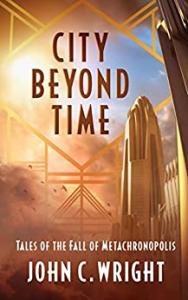
“You’re a Time Warden,” I said. “Very good, Mr. Frontino,” he said. His voice was blurry and harsh, as if he were not used to using the vocal cords he was using now. “That is the quickest you’ve ever come to the correct conclusion–this time around.”
“And you’re going to pretend I don’t remember the other versions, because of–why?” He spread his hands awkwardly, a gesture like a puppet with a clumsy puppeteer would make.
“That should be obvious, Mr. Frontino.”
“My other versions are being killed. And I suppose that if I pulled this trigger, your alternates won’t remember this version we’re in now either, eh?”
“Unless they were monitoring, no. They say the only way to kill a Time Warden, a careful one who looks into his past and future, is to wait for him to kill himself. But you flatliners don’t have that privilege, do you?” He smiled, sort of a sickly impersonation of good humor.
“Yeah. But we don’t have to sneak around, so afraid of paradoxes that we can’t even show our own faces in our own city that we allegedly rule. And we don’t have groups of phonies and crazies out and about pretending that they’re us when they’re not.” I reached up with my other hand and made an adjustment. Dots from aiming lasers appeared on his groin and chest and the wrist of his right hand, which was a little too near the hilt of his sword for my taste.
John C. Wright, City Beyond Time: Tales of the Fall of Metachronopolis (2014)
You can check out at Open Library
OTHER AUTHORS/OTHER LISTS
I plan on taking a look at some independent Catholic speculative writers. I might write an article on them. Some of the people I want to mention and maybe expand on later include…
Caroline Furlong A FB friend who I always see active online,
Jane Lebak– Who I meet live in person at a Writing Group
R.C.Mulhare A Personal Friend of Mine
Gina Marinello-Sweeney– Someone I’ve interacted with Online
And my wife Kristin wrote 2 Time Travel Sci-Fi Stories for Kids.
I hope to revise these and expand upon them. At some point.
And maybe I’ll make a detailed list of these writers. I’ve mention several of them in some of my other articles.
The Detection Club: and another Catholic Mystery Writer
G. K. Chesterton – author of the Father Brown Mysteries
Dorothy L Sayers- Author of the Lord Peter Wimsey Mysteries
Ronald Knox -Author of the Insurance Firm Investigator Miles Bredon Mysteries
Ralph McInerny – Author of the Father Dowling Mysteries
The Inklings
C. S. Lewis – Creator of Narnia and some Catholic Sci-Fi
J. R. R. Tolkien – Creator of Middle Earth and the Hobbits
Charles Williams-Author of War in Heaven (1930)
Our Lord and the Saints
Jim Bishop- The Day Christ was Born and The Day Christ Died.
Louis de Wohl- who wrote a lot of novels about saints.
Fulton Oursler (January 22, 1893 – May 24, 1952)
The Greatest Story Ever Told Series:
The Greatest Story Ever Told: A Tale of the Greatest Life Ever Lived (1949)
The Greatest Book Ever Written: The Old Testament Story (1951)
The Greatest Faith Ever Known: The Story of the Men Who First Spread the Religion of Jesus and of the Momentous Times in Which They Lived. (1953)
This book was started by Fulton and finished by his daugher April Oursler Armstrong who also wrote
The Tales Christ Told (1959).
Will Oursler (1913–1985) who helped his dad write a book about and a book about Servant of God Father Flanagan of Boy’s Town, (1949)
Fulton like a lot of other Catholic Writers also wrote mystery novels.
Some Popular Catholic Genre Writers
Hilaire Belloc
Graham Greene
Michael O Brian
Flannery O’Connor
Brian Moore (1921–1999)
Walter Percy
J.F. Powers (July 8, 1917 – June 12, 1999)-The Stories of J.F. Powers
Evelyn Waugh
Morris West
I would be amiss if I didn’t include one of my favorite Catholic novels.
A Philadelphia Catholic in King James’s Court by Martin Deporres Kennedy (1999) which is sadly out of Print.

I have so many more I want to mention, but that is a list for another article.
EXTRA BONUS
William Peter Blatty
“There it lies, I think, Damien … possession; not in wars, as some tend to believe; not so much; and very rarely in extraordinary interventions such as here … this girl … this poor child. No, I tend to see possession most often in the little things, Damien: in the senseless, petty spites and misunderstandings; the cruel and cutting word that leaps unbidden to the tongue between friends. Between lovers. Between husbands and wives. Enough of these and we have no need of Satan to manage our wars; these we manage for ourselves … for ourselves.”
― The Exorcist




